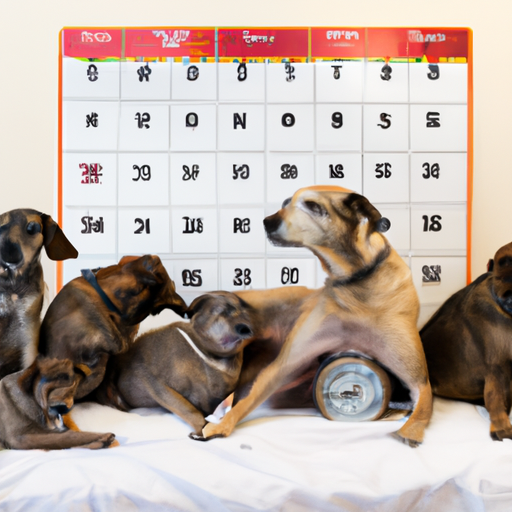As a caregiver to your furry companion, you’ve probably wondered, “For how long are dogs pregnant?” Well, the answer isn’t as straightforward as you might think. Like humans, dogs have a range for their gestation period, and it can vary based on a variety of factors, including breed, size, and the individual dog’s health. This article will delve deep to help you understand everything you need to know about canine gestation.
Table of Contents
- Understanding Canine Gestation
- The Stages of Dog Pregnancy
- Factors Influencing Dog Pregnancy Duration
- How to Determine If Your Dog Is Pregnant
- Frequently Asked Questions
Key Takeaways
- The average duration of dog pregnancy is about 63 days, but it can range from 58 to 68 days.
- Dog pregnancy is divided into three stages: proestrus, estrus, and diestrus.
- Breed, size, and health can influence the length of a dog’s pregnancy.
- There are several signs that can indicate a dog is pregnant.
Understanding Canine Gestation
The average duration of dog pregnancy is approximately 63 days, but it can vary from 58 to 68 days. This is counted from the day of ovulation until the day of birth. However, determining the exact day of ovulation in dogs can be tricky. Unlike humans, female dogs don’t have a regular menstrual cycle. Instead, they go through what’s known as an estrous cycle about twice a year. This cycle is divided into several stages, with ovulation occurring during the estrus stage.
One helpful resource you can use to better understand canine fertility and reproduction is The American Kennel Club’s guide.
The Stages of Dog Pregnancy
Dog pregnancy can be divided into three main stages:
- Proestrus: The initial stage of the cycle, where female dogs attract males but will not accept them for mating. This stage lasts about nine days.
- Estrus: Also known as ‘heat’, this is the stage where dogs are fertile and receptive to mating. It typically lasts nine days, but can vary from three to 21 days.
- Diestrus: This is the final stage, lasting about 60 days, during which pregnancy occurs if the dog has been successfully bred.
To help your dog through these stages, One Top Dog offers a number of helpful guides, such as ‘Understanding Your Dog’s Heat Cycle’ and ‘Caring for a Pregnant Dog’.
Factors Influencing Dog Pregnancy Duration
Several factors can influence the duration of a dog’s pregnancy. Breed is one such factor, with smaller breeds tending to have shorter gestation periods. Size also plays a role, with larger dogs typically having longer pregnancies. Finally, health is a crucial factor, with healthy dogs more likely to have pregnancies within the normal range.
For more information on how these factors can influence dog pregnancy, check out One Top Dog’s guide on breed-specific health issues.
How to Determine If Your Dog Is Pregnant
There are several signs that your dog might be pregnant. These can include changes in appetite, behavior, and physical appearance. However, the most reliable way to determine pregnancy is through a veterinary exam.
One Top Dog’s article on ‘Signs Your Dog Might Be Pregnant’ provides a comprehensive list of what to look for.
Frequently Asked Questions
Q: Can I use a human pregnancy test on my dog?
A: No, human pregnancy tests will not work on dogs. The best way to confirm a dog’s pregnancy is through a veterinary exam.
Q: How long after mating will a dog show signs of pregnancy?
A: Signs of pregnancy can start to appear about three weeks after mating. However, some dogs may not show any signs until the final weeks of gestation.
Q: Can dogs have an irregular gestation period?
A: Yes, just like humans, dogs can have irregular gestation periods. Factors such as breed, size, and health can influence the length of a dog’s pregnancy.
In conclusion, understanding the duration and stages of canine gestation can equip you with the knowledge needed to provide optimal care for your pregnant dog. Armed with this information, you can ensure your furry friend has a safe and healthy pregnancy.



